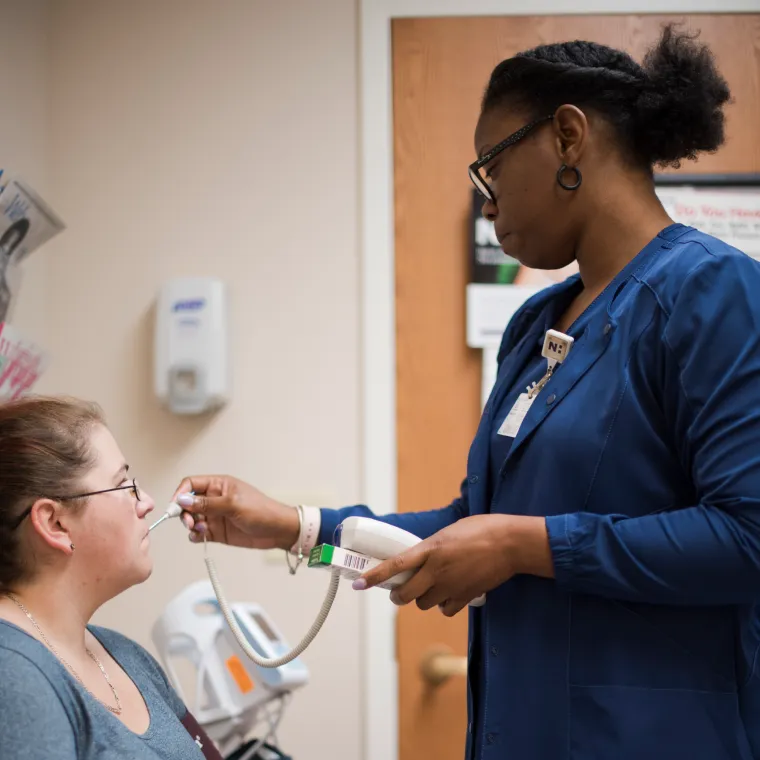Gynecologic Conditions
Find expert care for every stage of life.
Throughout your life, your healthcare needs will change. The team at Novant Health provides comprehensive gynecologic services for all stages of your life. Whether you need routine care, treatment for common gynecologic conditions or advanced services for more complex concerns, you will find an expert team focused on your unique needs.

Common Gynecologic Conditions
Establishing a relationship with a gynecologist early is important to maintain your reproductive and gynecological health over your lifetime. Routine care can help identify any concerns early so they can be addressed as soon as possible, providing relief and better treatment options. Our team also understands that gynecological concerns may involve discussing personal information, so we offer a comfortable and supportive environment to help put you at ease.
Treatment for Gynecologic Conditions
The expert team at Novant Health offers diagnosis and advanced treatment options for a range of gynecologic conditions – from routine to complex. Whether your individualized treatment plan requires medication, surgery or a minimally invasive procedure, we are available to care for you through all ages and stages of life.
Nonsurgical Treatment for Incontinence
An overactive bladder can be an inconvenient, uncomfortable and potentially embarrassing issue. If you've tried lifestyle changes and medication without success, talk to your provider to see if Botox injections may be an effective treatment for urinary incontinence.

